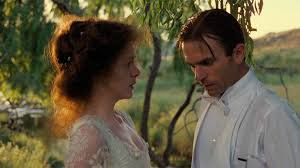Off-List: The China Syndrome
The first
off-List movie for 1979 is “The China Syndrome”. I picked this one because I
thought I remembered watching it years ago. Turns out that was a different
movie, and I only knew of this movie by reputation. So, yes, a movie with a
large reputation and a first view for me.
Kimberly
Wells (Jane Fonda) is a news reporter on a Los Angeles TV station, doing puff pieces
on singing birthday cards and zoo events. One such assignment is on the Ventana
nuclear power plant where the local manager explains about nuclear energy. While
filming there is a tremor, and they witness what looks like a near fatal accident.
Jack Godell (Jack Lemmon), the floor manager looks very distressed by the event
and unknown to the plant manager the cameraman, Richard (Michael Douglas), has
filmed the event.
Kimberly’s
managers do not want to use the material so a very upset Richard steals the
tape and shows it to a nuclear energy expert who is testifying in a public
hearing on another of the power company’s plants. Meanwhile, Jack Godell, while
trusting that the system and the failsafes work, is worrying about something
not sounding right during the event and starts looking into the structural
details. When he finds that the welding inspections are faked he gets really
worried and soon Kimberly, Michael and Jack are up against some very powerful
interests.
“The China
Syndrome’s” claim to fame is that it was released just 12 days before the
accident on the Three Mile Island nuclear plant, making it a warning against
the dangers of nuclear energy. This is of course a coincident and maybe a bit
unfair because as I see it, it is more about the public against big money who
in the interest of their business take incredible risks with health and safety,
kills, steals and lies. The public’s watchdog is supposed to be the media, but
media itself may be compromised. So, basically, this is a conspiracy story
where threat of a nuclear accident simply demonstrates the high stakes of the
game.
If we are
to focus on the nuclear accident aspect, I think the Chernobyl case is probably
a better parallel. There it was personal ambition and political interest (the
communist equivalent of big business) that set aside public safety and caused a
major accident. If the threat of a nuclear accident really was the main theme
of this movie, it would and should have gone much further down that road.
It is obvious
that Kimberly, Richard and Jack represent honesty and public interest, the need
to do the right thing and therefore they have our sympathy. It is equally clear
that they have no idea what they are up against and only in the final minutes
realize how small potatoes they really are. That realization is probably more
chilling in this movie than the threat of a nuclear accident and I think “The
China Syndrome” is one of the better conspiracy movies at that.
The cast speaks
for itself. Fonda is always good and it was fun watching a young (and
rebellious) Michael Douglas, but it is Jack Lemmon that steals the picture. His
portrait of a troubled engineer, challenged on his integrity is phenomenal,
though career best would maybe be a step too far in such a glorious career.
Both Jane Fonda and Jack Lemmon were nominated for Academy Awards and Lemmon
won it in Cannes.
I quickly
overcame my disappointment that this was not the movie I expected it to be and
enjoyed what I got instead. This is a well composed movie and not as stereotype
as conspiracy movies tend to be. And of course, points of pointing out that
some things are just too dangerous to play games with. Recommended.




